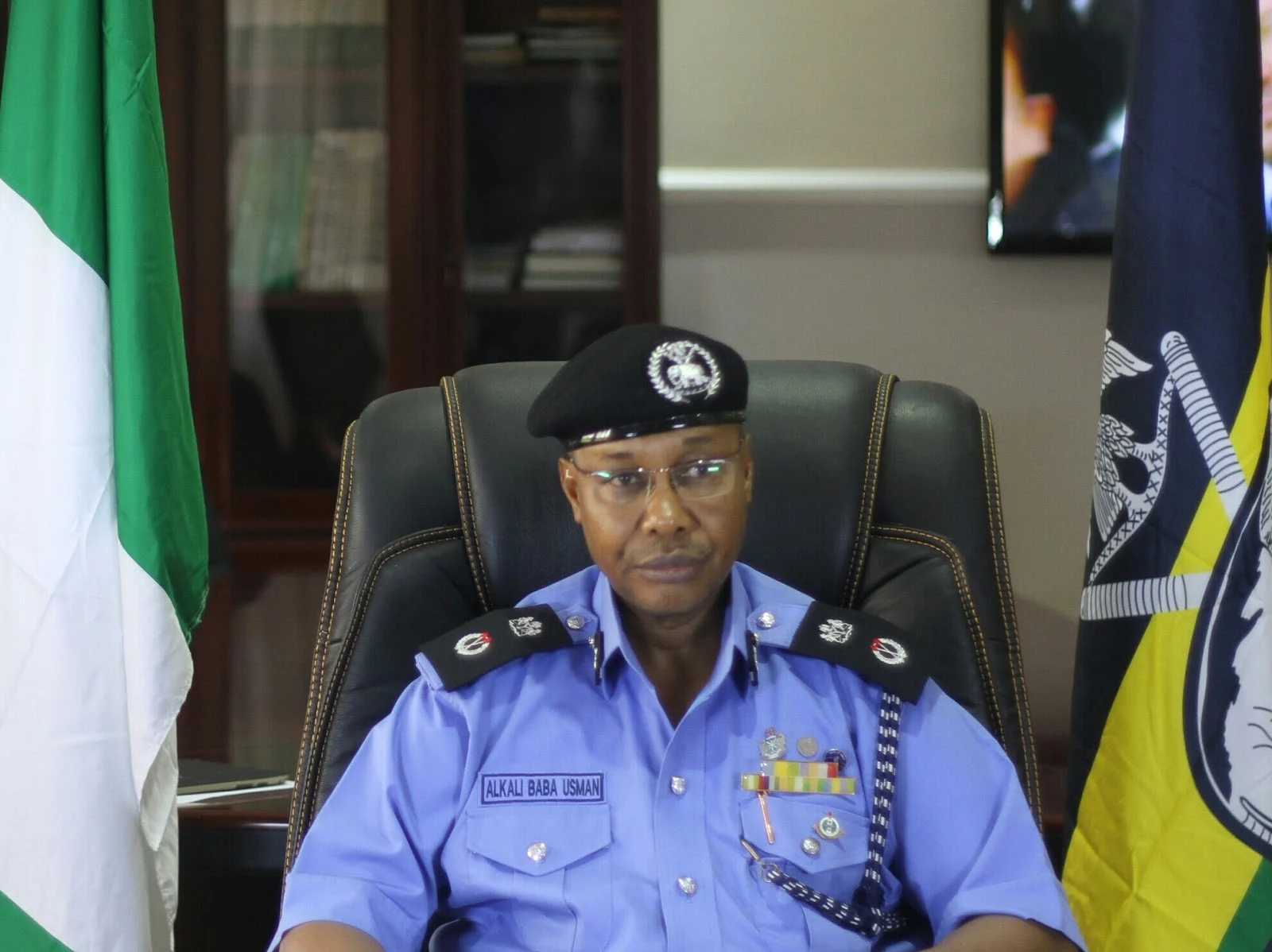A directive by the acting Inspector General of Police (IGP), Usman Baba Alkali, to withdraw 25 key detectives attached to the Economic and Financial Crimes Commission (EFCC) has generated mixed feelings among insiders in the commission and stakeholders over likely implication of the action on the commission’s operations.
The IGP had in a letter dated April 15, asked the Chairman of EFCC, Abdulrasheed Bawa, to release all senior officers from the rank of Chief Superintendent of Police (CSP) and above who are attached to the commission.
The EFCC, set up in 2003 by a seconded police officer, then ACP Nuhu Ribadu, has since then defended heavily on police officers deployed from time to time in conducting its investigative activities, in spite of recruiting and training detectives from the first set in 2005.
In recent years, there have been agitations by ‘core staff’ of the commission demanding that the running of the anti-graft agency be handed over to them. This agitation received its major boost with the appointment of Bawa as the first non-police chairman of the commission.
In the aftermath of the suspension of former EFCC acting chairman, Ibrahim Magu, 20 senior officers, holding strategic positions in the commission were redeployed to the police in July last year. Bawa last month appointed Abdulkarim Chukkol as director of operations of the commission. Chukkol, a member of Bawa’s Course 1, is the first person with no police background to hold the position.
The only three zonal heads from the police who survived initial purge; Sanusi Abdullahi (Kaduna), Hamza Rilwan (Maiduguri) and Sanusi Aliyu Mohammed (Kano) were removed last month. In a deployment notice dated March 26, the trio were recalled to the headquarters of the commission to take charge of general investigation, AMCON desk and banking fraud units respectively.
The latest police signal recalling senior officers has raised questions about the implications of the action on the work of the commission.
While some officers and watchers described the development as healthy and an opportunity for the commission to evolve, other insiders expressed concerns that there would be operational lapses as a result of the purge of the more experienced police investigators.
A former senior detective who was redeployed to the police last year confided in Daily Trust that some lapses are already emerging with those in charge presently getting overwhelmed by the work.
“Even yesterday, I received three different calls from some of the men I worked with seeking my help on some issues that they found tricky,” he said.
A senior official with the commission told Daily Trust that the development was an opportunity for the police to move on and allow the EFCC to continue its journey. He said the acrimony between the police and other EFCC staff was getting toxic for a working relationship.
The source, a police officer, said before the EFCC, the police helped in setting up other agencies such as the Federal Road Safety Corps (FRSC), the National Drugs Law Enforcement Agency (NDLEA), among others but the ending was not good in all cases.
Changes in zonal offices
The new Zonal Head in Kaduna, Harry Henry, is a member of Course 1 and the first civilian head to assumed duty at the zonal office in Kaduna.
Daily Trust gathered that Mr. Harry assumed duty on the 26th of March 2021 after the immediate past zonal head of the commission was transferred to Abuja.
A staff of the commission in Kaduna who pleaded anonymity because he was not sto speak to the media said the changes were done nationwide.
“There were changes at the commission’s offices nationwide, which led to the transfer of our former boss Sanusi Abdullahi who is now in Abuja. Before Harry, the previous zonal heads were police officers but Mr. Harry is the first non-police officer to head the Kaduna zonal office,’ he said.
In Kano, Mualledi Farouk Dogondaji, who was hitherto the second in command in the zone, and a member of Course 1 was promoted to take charge of the office.
Sources at the zonal office said not much has changed since the change of baton because Dogondaji is well known to all the operatives of the commission in the zone and activities have not been impacted negatively by the change.
When contacted, the spokesman of the anti-graft agency, Wilson Uwujaren, in a text message sent to one of our correspondents simply said, “The request is receiving necessary attention”.
A few hours later, Uwujaren issued a statement, announcing resumption of duties of some new heads.
He said officials of the commission, the Department of State Service (DSS) and the Nigeria Police pledged to intensify their collaboration in the fight against corruption.
He said they stated the commitment when Heads of EFCC Zonal Offices in Kaduna and Ilorin, visited the Director of DSS Kaduna and the Kwara State Police Commissioner respectively.
According to him, in Kaduna Zonal office, Harry Erin told the State Director, Ahmed Idris Koya that he was visiting to familiarize himself with heads of security agencies in the State.
Erin thanked the DSS for its support to the Commission especially in intelligence, tracking of criminals engage in money laundering and terrorism financing.
He recalled that, with the help of the DSS, two suspects were recently arrested and one of them charged to court and convicted. Responding, Koya, commended the history of collaboration between the agencies, saying, “there is the need for the two agencies to foster stronger synergy because no organization globally will fight crime especially money laundering and terrorism financing alone; we need each other.”
In the same vein, the new Zonal Head of the EFCC in Ilorin, Usman Muktar, called for increased synergy between the EFCC and the Nigeria police in the task of fighting corruption.
Muktar, during a courtesy visit to the Commissioner of Police, Kwara State Command, Mohammad Bagega, at the Command Headquarters, Ilorin, said “The Police has been a pillar of support to the EFCC since inception.
“Strengthening the already established cordial relationship between the EFCC and the police will greatly assist in curbing the menace of corruption and other criminalities in the State.”
He added, “My Predecessor had told me about the good relationship between the Commission and the Command. We want it to continue in that way. We are seeking for more cooperation such that any time we knock at your door, we want it open for us”, he added.
Responding, CP Bagega welcomed his guest with delight saying: “We are a family. We will give you whatever support you ask of us; operationally and intelligence-wise. We will support your efforts to stamp out corruption in Nigeria.
“The secret of our successes in Kwara State is the synergy and collaboration among law enforcement agencies including the EFCC. We believe that what affects one affects all. Hence, we synergise because no one can do it alone”, said the CP.
It’s in order – Lawyers, CSOs
Reacting, a lawyer, Frank Tietie said it is a welcome development, which will stop the abuse of the Nigeria Police and help regulatory, enforcement and prosecutory agencies like the EFCC, ICPC, NAFDAC, and SON develop their unique culture separate from the police.
“Agencies that are regulatory, enforcement or prosecutory in nature should not allow the policemen determine the culture of investigation, prosecution and enforcement that is associated with the police. They should develop their own culture,” he said.
Also contributing, Buhari Yusuf Esq said there is nothing abnormal in the withdrawal of the attached police officers as the functions of both the Nigerian Police and the EFCC have been clearly defined under their establishment Acts.
“Primarily, the EFCC is established to see to financial crimes and related misdeeds. These are intelligence-driven, internally trained and grounded officers. In other climes, most of the officers must be well versed in investigation, prosecution and what have you,” he said.
Reacting to the development in an interview with one of our correspondents, Chairman of the Human and Environmental Development Agenda (HEDA), Olanrewaju Suraju, said the founder of the commission had envisaged that police could not continue to run it.
Suraju said, “It is neither here nor there. The instruction, to the best of my knowledge, is from the Inspector-General of Police, so, for that reason, with the appointment of the new chairman of the EFCC, it was the expectation of the founder of the EFCC that at some point, parts of the commission’s pioneer staff would take over the management affairs at the commission.
“That instruction from the IGP, stating that from CSP upward be withdrawn, is also technically saying that those who were senior in rank to the current chairman before his appointment by the service of law enforcement, are not expected to serve under their junior officers.
“As a matter of fact, they are expected to have gone back to the police. I’m aware that when the immediate past acting chairman was appointed, there were those who were senior in rank and they had to voluntarily withdraw from the commission.
“With this development, it has invited another opportunity to reform its own, especially the Force Criminal Investigation Department (FCID) and the previous fraud unit of the police. With these professionals that have been trained overtime by the EFCC before now, so that they could also provide needed support in the fight against corruption, financial crimes and fraud, are in need so that it would not be of EFCC and ICPC alone.
“I think this should be taken in very good light, and it should also assist in the so-called police reforms that we have all been clamouring for.”
Similarly, the National Coordinator of Human Right Writers Association (HURIWA), Emmanuel Onwubiko, said the withdrawal was legal and appropriate, adding that it was high time for the EFCC to train and have its own armed unit.
According to him, an institution like the police facing image challenge should only concentrate on its primary policing functions and fighting crimes.
“The withdrawal of senior police officers from the EFCC is procedural and legally appropriate. The EFCC as an anti-corruption agency is never intended to be another wing or department of the police.
“I think the EFCC should not necessarily be seen as a policing institution. It is a law enforcement agency and it should train and be allowed to have their professionally trained armed department that will be in charge of enforcement functions.
“The Nigerian Police Force is a weak and challenged institution, which needs immediate, comprehensive and total reforms. All hands need to be on the deck. To change the face of the police, all their senior officers should be burdened only with primary policing functions.”
Police unreachable
Attempts to speak with Force Public Relations Officer, Frank Mba proved abortive as several calls put across to him were neither answered nor did he respond to a text message sent to him.
By John Chuks, Idowu Isamotu (Abuja), Eugene Agha, Adelanwa Bamgboye (Lagos), Clement Oloyede (Kano), & Mohammed I. Yaba (Kaduna)

 Join Daily Trust WhatsApp Community For Quick Access To News and Happenings Around You.
Join Daily Trust WhatsApp Community For Quick Access To News and Happenings Around You.


